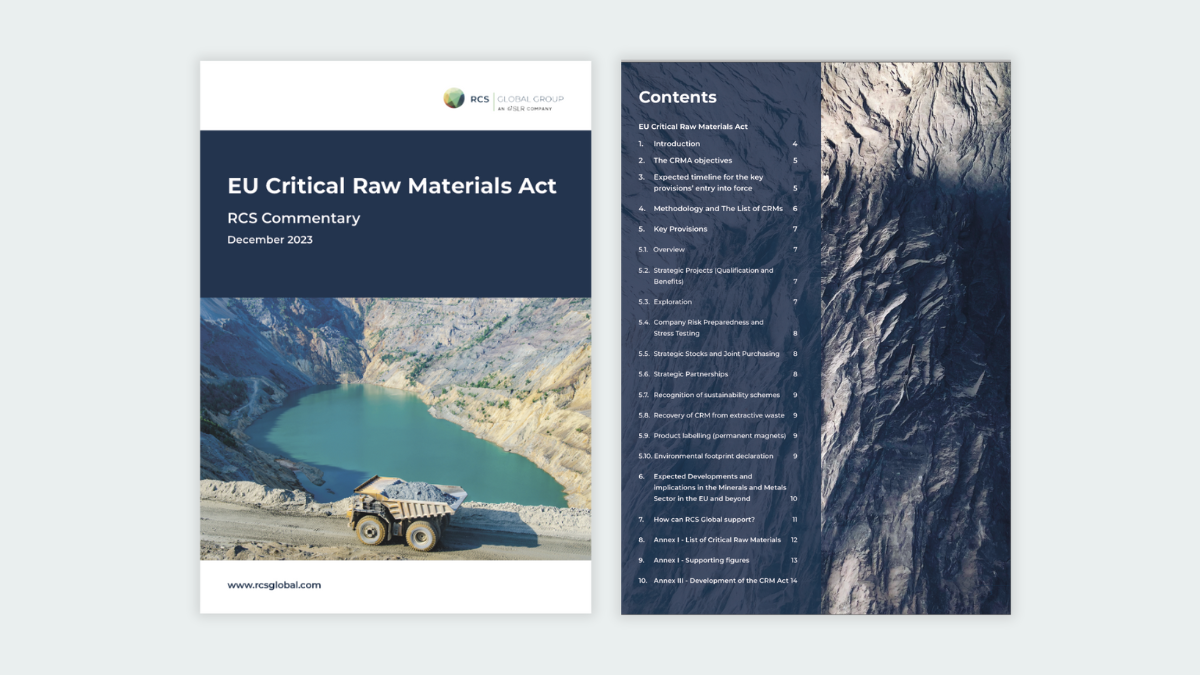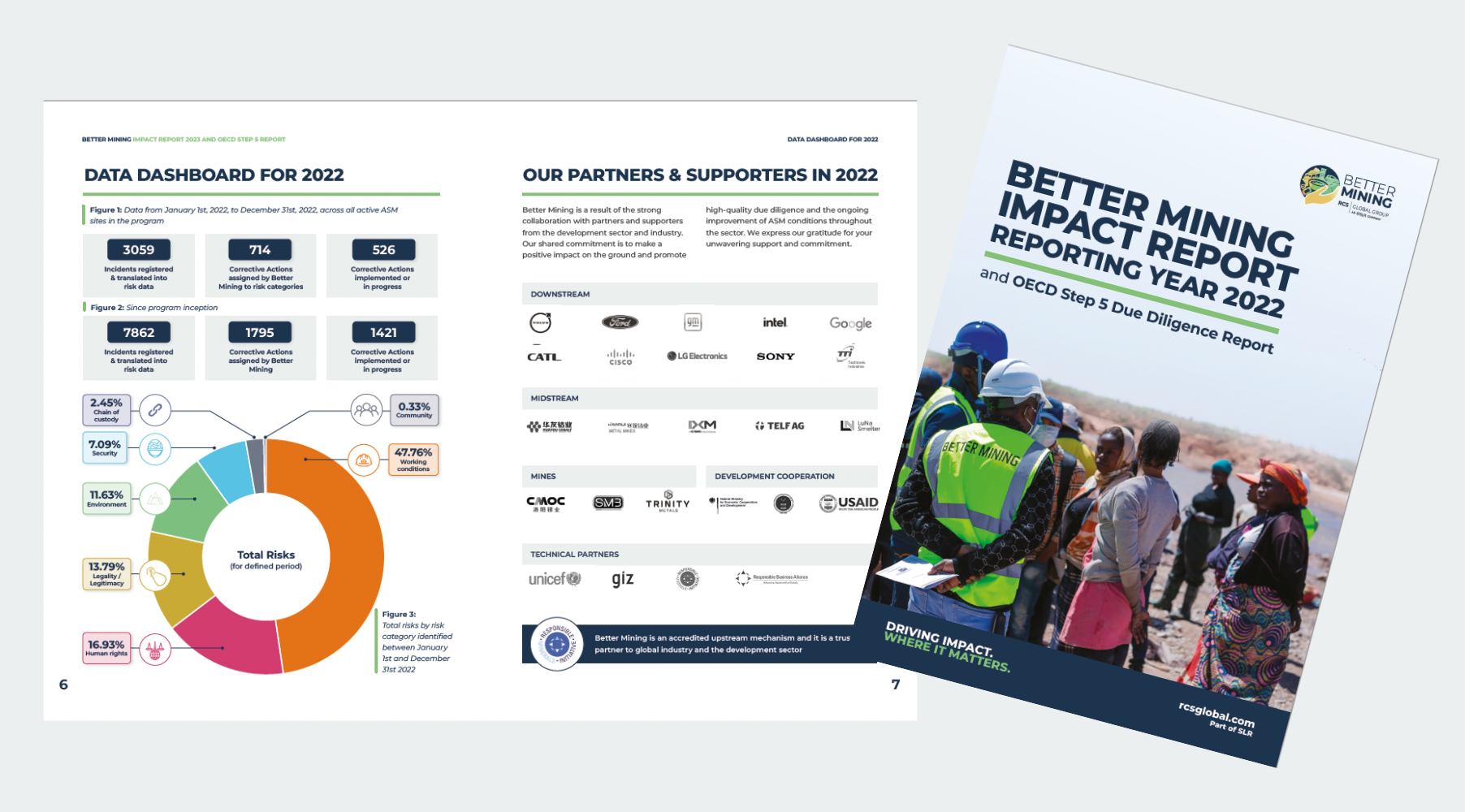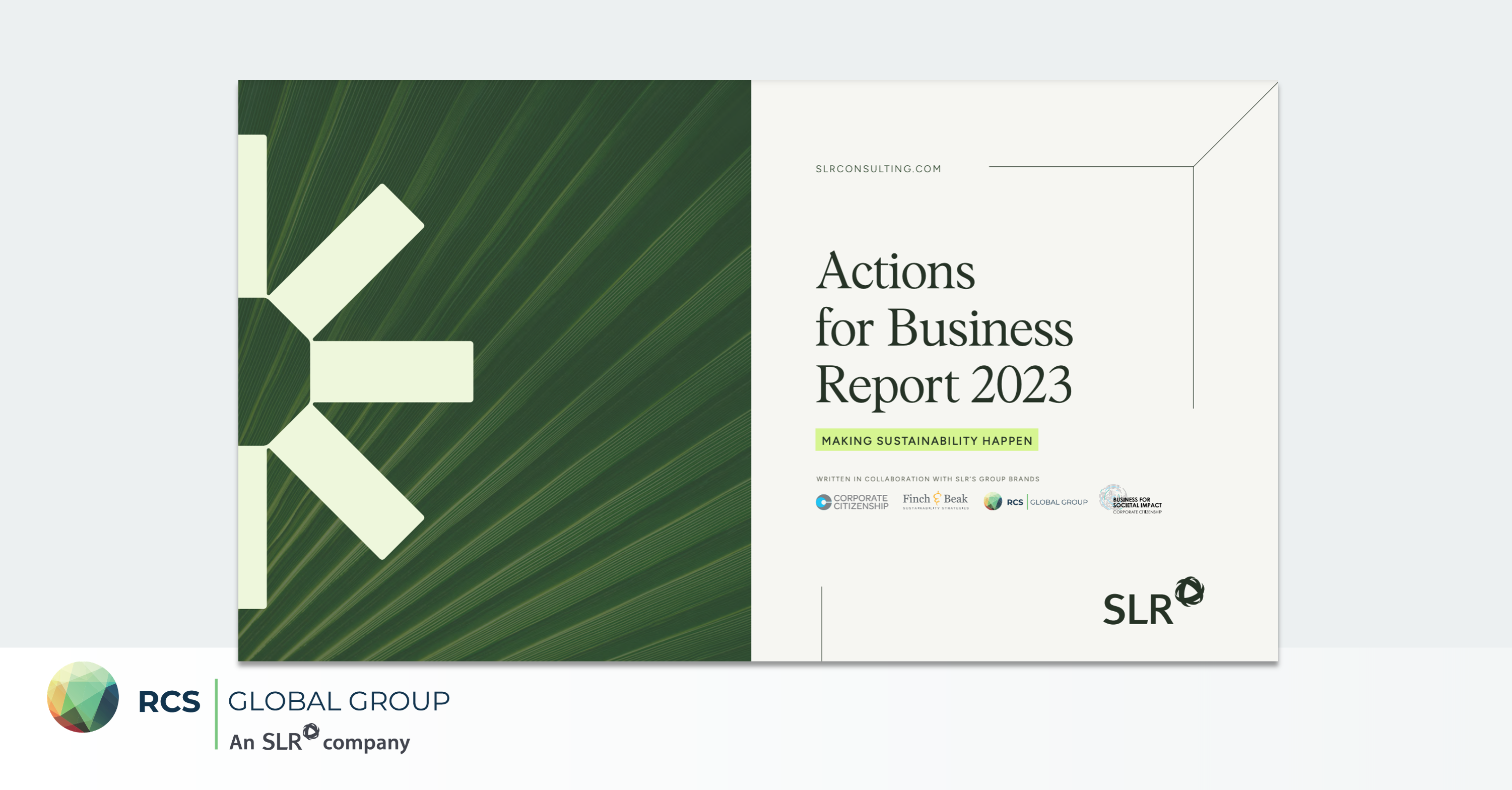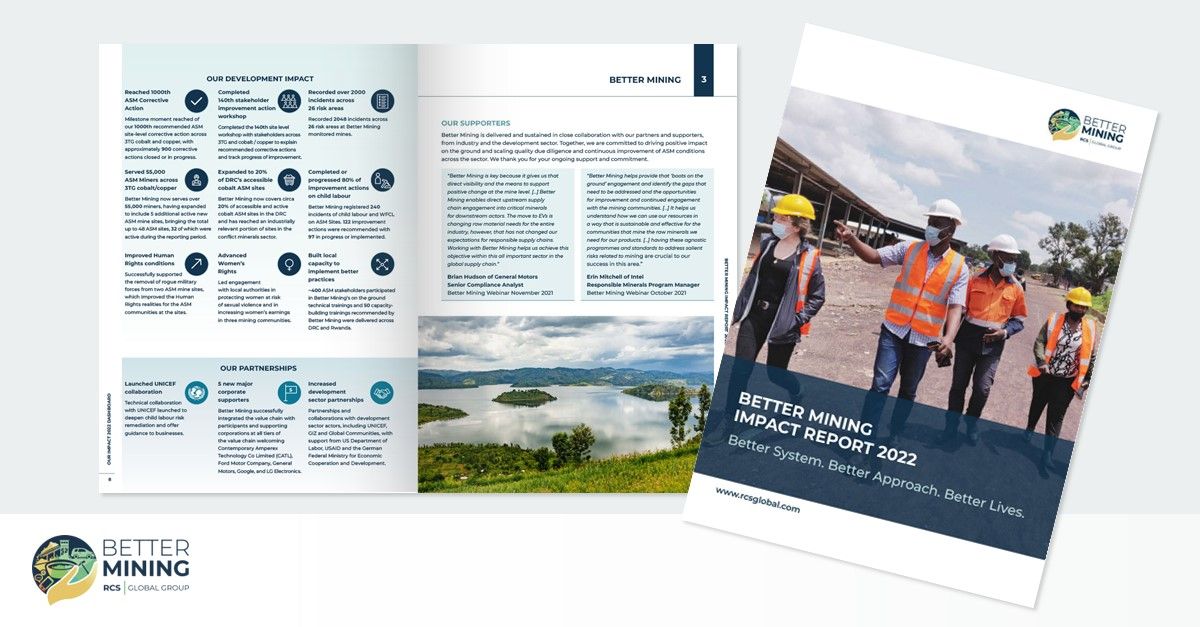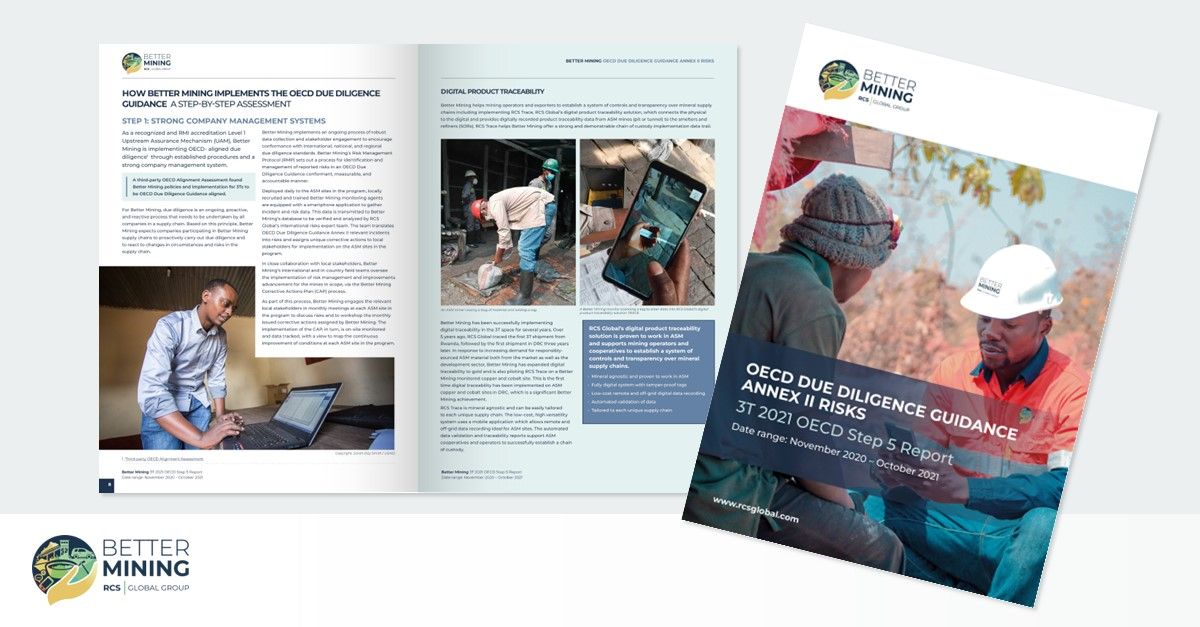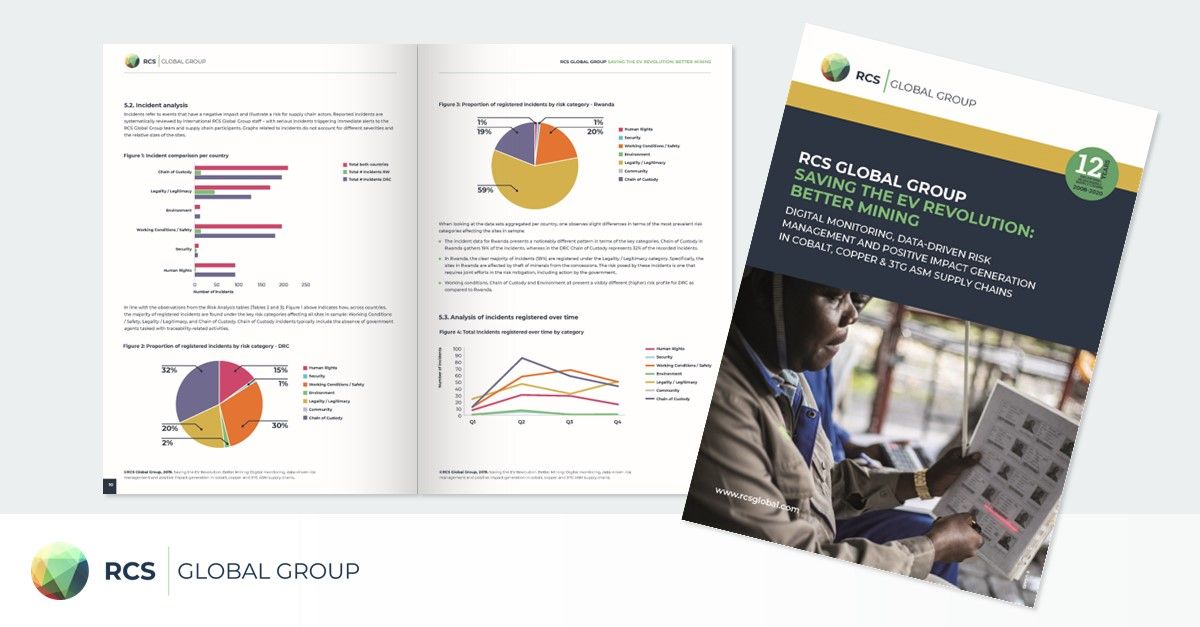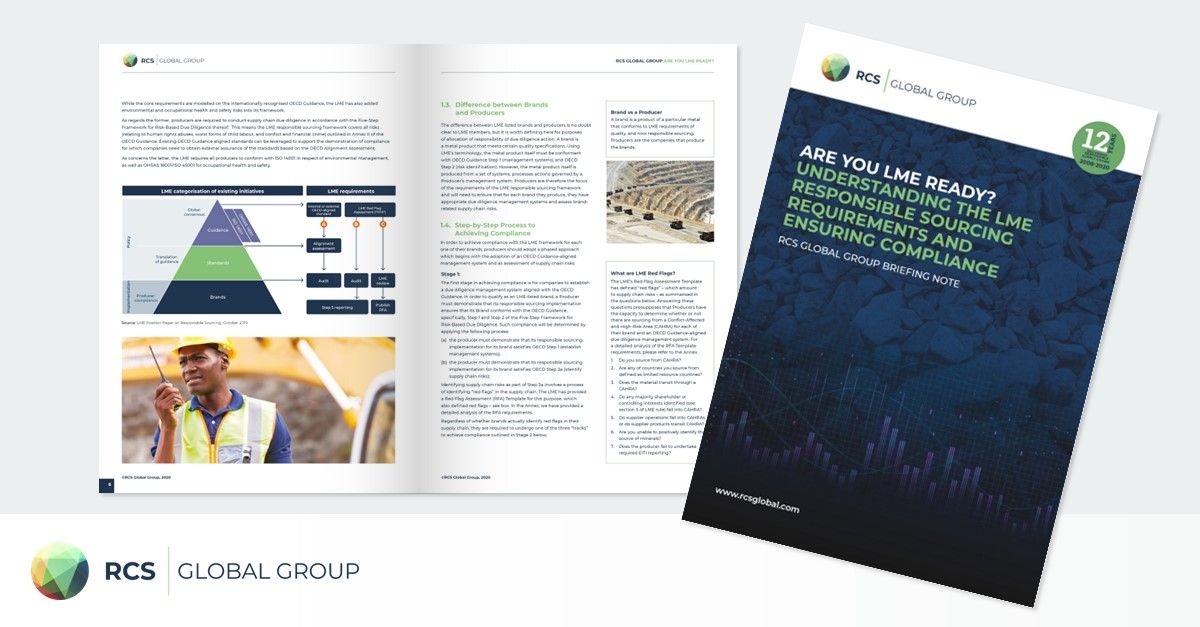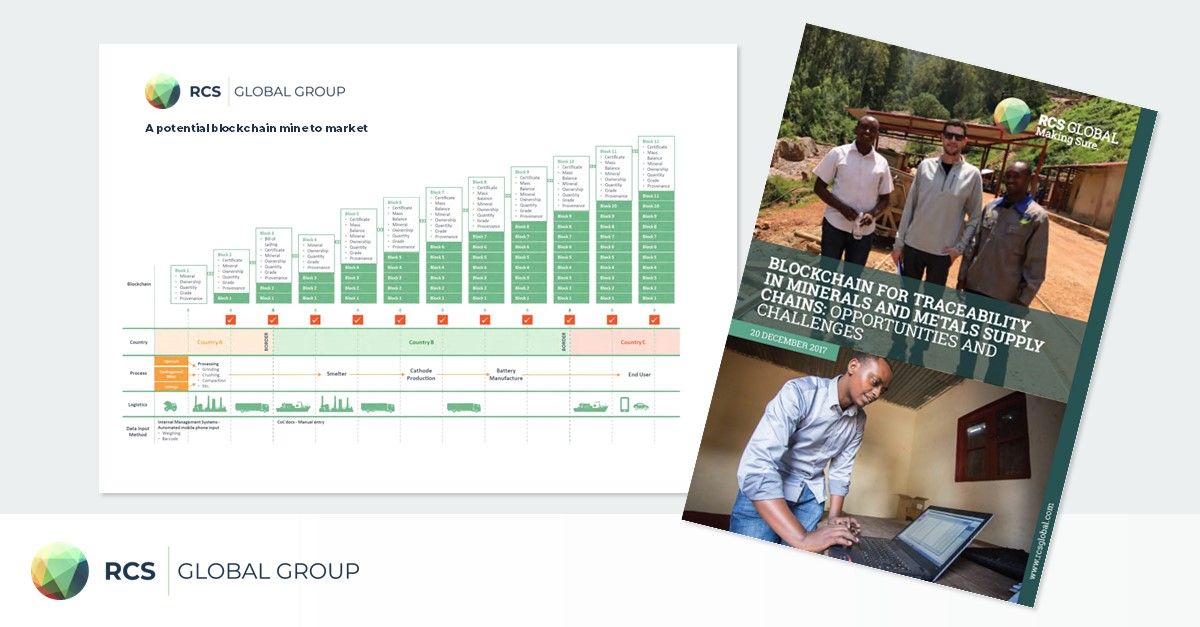News
RCS Global takeaways from the OECD Forum on Responsible Mineral Supply Chains 2023
Paris, 9 May 2023
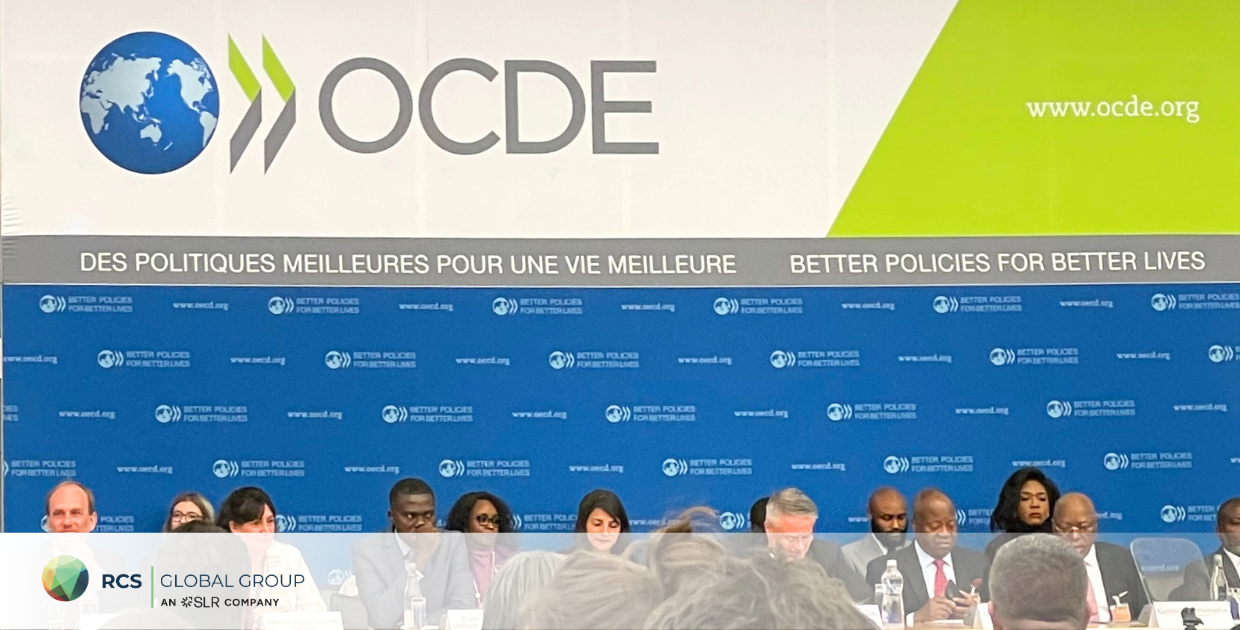
Responsible sourcing experts from RCS Global were excited to attend this year’s OECD Minerals Forum from 24 to 29 April in Paris. We connected with various stakeholders from the industry, public sector, industry standards bodies and civil society to discuss the latest developments in market expectations and regulation for supply chain due diligence. As in previous years, most of the forum discussions focused on the implementation of the OECD Due Diligence Guidance for Responsible Supply Chains of Minerals from Conflict-Affected and High-Risk Areas (“OECD Guidance”).
Businesses of all sizes and shapes no longer see due diligence simply as a matter of compliance, but as a tool for building a sustainable and resilient supply chain. It is also clear that regulation will continue to strongly shape the responsible sourcing landscape over the coming years by setting clear and measurable requirements for supply chain due diligence. Stakeholder expectations are also growing, but many supply chain actors are still only at the beginning of their sustainability journey, with many unknowns. Large enterprises with greater leverage and resources are leading the debate on responsible sourcing, which also means speaking openly about the challenges they face.
Read below our summary of the key issues raised by various stakeholders during the Forum regarding the implementation of the OECD Due Diligence Guidance and for compliance with the upcoming Due Diligence Regulation:
Lack of convergence among the various regulatory initiatives and responsible sourcing standards in terms of requirements, as well as uncertainties around their practical implementation. The latest EU due diligence regulation is welcomed by industry players, but many participants cautioned that the multitude of requirements may create an unnecessary administrative burden for EU companies and their business partners. Industry stakeholders called for a harmonized approach in line with the OECD Due Diligence Guidelines for Multinational Enterprises, the OECD Guidance and the UN Guiding Principles on Business and Human Rights. In Session 7 – Completing the chain: addressing systemic shortcomings in minerals due diligence – the role of legislation and market requirements, a major German automaker reiterated that due diligence should be risked-based, a concept which is missing or not evident within the latest EU regulation.
Reliability of supply chain audits has been a recurring topic. While these are important tools in increasing supply chain transparency, audits should be complemented by additional risk management activities to practically mitigate ESG risks. In Session 7, a prominent and vocal NGO criticized industry audit programmes, such as RMAP, for the lack of transparency of audit results and warned about the downstream industry’s overreliance on audits. IRMA was mentioned in the same panel as a positive example that requires comprehensive audit disclosure. (RCS Global notes that IRMA does not yet have a relevant number of mines that have undergone an audit and has historically focussed its efforts on the upstream, entering the midstream only recently). The representative also mentioned that certain industry programmes lack independence from industry and therefore lack credibility.
Engagement with workers and communities in sourcing countries and suppliers that are multiple tiers removed remains a major challenge for downstream companies, including but by no means limited to automotive and electronics OEMs. Some positive examples of corporate engagement successes through collective action were referenced. Stakeholders agreed that collaboration is key in addressing ESG risks and achieving positive impacts. While industry initiatives such as RBA-RMI and Drive Sustainability have played an important role in defining responsible sourcing over the past years, far more opportunities must be created for multi-stakeholder dialogue and resulting multistakeholder-informed action. Specifically, workers and communities should be engaged in policy design and implementation, according to a representative of a key global workers union. Just transition requires a “comprehensive industrial policy”, while the EU due diligence regulation only focuses on basic rights, according to the representative.
A joint approach is needed to address environmental challenges. In Session 4 – Stepping up environmental due diligence in pursuit of a just transition, speakers discussed the upcoming OECD Handbook on Environmental Due Diligence in Mineral Supply Chains. The latter is expected to offer a blueprint for companies and their counterparts to address environmental risks in line with the national and EU due diligence regulation. The handbook will not become another guidance nor a legal instrument but a supporting document for companies that is based on the learnings of the OECD Due Diligence Guidance implementation. The release of the handbook was initially planned to coincide with the Forum but was postponed ensuring alignment with the updated OECD Guidelines for Multinational Enterprises. The handbook is expected to be released around June/July 2023.
Risk mitigation and access to remedy. Although many companies have established strong due diligence management systems and have developed a process to identify, assess and prioritise risks in their supply chains, there is still much uncertainty and insufficient action around risk mitigation and remediation of adverse impacts. This is particularly around what measures are considered appropriate, and how to determine responsibility and liability. These concerns were raised in multiple sessions by various actors.
Existing corporate due diligence programmes often fail to provide an appropriate response to corruption risks. In Session 3 – Accessing minerals…at all costs? Combating corruption amid growing demand for raw materials, the panellists named several key actions to tackle corruption. These included legislation, government-to-government action, disclosure of tax payments and beneficial ownership transparency. A prominent NGO representative also highlighted that civil society plays an important role in keeping the governments and companies accountable. Participants from the industry agreed that companies face significant limitations when managing corruption risks. According to a representative of a prominent Asian industry body, it is difficult for mid- and downstream to collect evidence of corruption in the upstream sector beyond checking supplier policies and media articles. Generally, stakeholders cautioned that a lack of clarity remains regarding potential remediation.
The renewables sector is ramping up efforts in order to be a responsible consumer of minerals. The industry is facing pressure from civil society as well as investors who are expanding due diligence requirements in associated supply chains, according to an institutional investor. Key challenges for the renewables sector include issues regarding land use, indigenous peoples’ rights, as well as forced labour in polysilicon supply chains. To confront these challenges, the solar panel industry is including new clauses in their contractual relations, pooling efforts to avoid audit fatigue, drafting and distributing standard questionnaires, and leveraging stakeholder association. A renewable energy provider also spoke about their company’s commitment to achieve net zero in their entire value chain.
Engagement with the upstream was once again a central topic of conversation with a continuous need for greater downstream participation, ownership of responsibility across the value chain, and transparency. The scope of critical minerals is expanding and demands are soaring. This year’s significant focus on Latin America seemed to warn about the same risks of artisanal gold mining expanding to more minerals. Industrial production will not be able to meet the high demand of the green energy transition and it will become unavoidable to engage with ASM. In combination with increasingly more diversified mineral supply chains, it might become even harder to achieve unified stakeholder engagement to address the risks present in ASM across multiple geographies. Another observation was the generally more downstream, risk-centric focus in conversations around ASM, where conversation might have benefitted from more focus on the interest of the local people and communities.
Across the ASM-focused sessions, it was evident that risk mitigation and remediation have been able to drive positive changes in the artisanal- and small-scale mining sector, but that these mechanisms can only drive improvements to a certain stage. RCS Global was invited to present the Better Mining program, the ASM focussed impact program and its implementation in Madagascar and the African Great Lakes region in mica, cobalt, copper and 3TG at a side session. This was a very valuable opportunity to present a bottom-up view of the realities of risk remediation and impact in the ASM space. Conversations moved towards forward-looking approaches with a consistent call to address the root causes of the sector’s shortcomings, particularly regarding the prevalence of child labour and of environmental degradation that go beyond the historically popular focus on GHG emissions. For that goal, local stakeholders and government representatives urged that industry programs collaborate with each other and with local governments so that their efforts are aligned with national interests and more effective towards achieving systemic changes. The presence of significant knowledge gaps between mine operators, local governments and artisanal miners was also highlighted. It was stressed that a lack of awareness among artisanal mining communities of the value of minerals being extracted after being exported lead to unfair pricing and to extremely low-value retention from the activity, missing revenue that could be crucial in addressing the economic causes of risks.
The conference highlighted once more the complexities and challenges related to responsible sourcing and broader sustainability efforts in mineral supply chains, as well as the need for multi-stakeholder solutions. While the forum provided a platform for a nuanced discussion among various stakeholder groups, RCS would welcome further opportunities to collaborate on practical solutions and drive digital innovation, ultimately creating positive impacts across the mineral value chain and beyond.
About RCS Global Group
RCS Global Group (an SLR company) is the leading provider of Responsible Sourcing, Supply Chain Mapping, Responsible Mining, ESG Performance, and Traceability services. With a core focus on natural resources value chains, RCS Global advances the continuous improvement goals of its clients and partners through data-generating assurance efforts and data-driven technical solutions. RCS Global collaborates with global industry partners to implement the Better Mining program. For more information, please visit rcsglobal.com.
